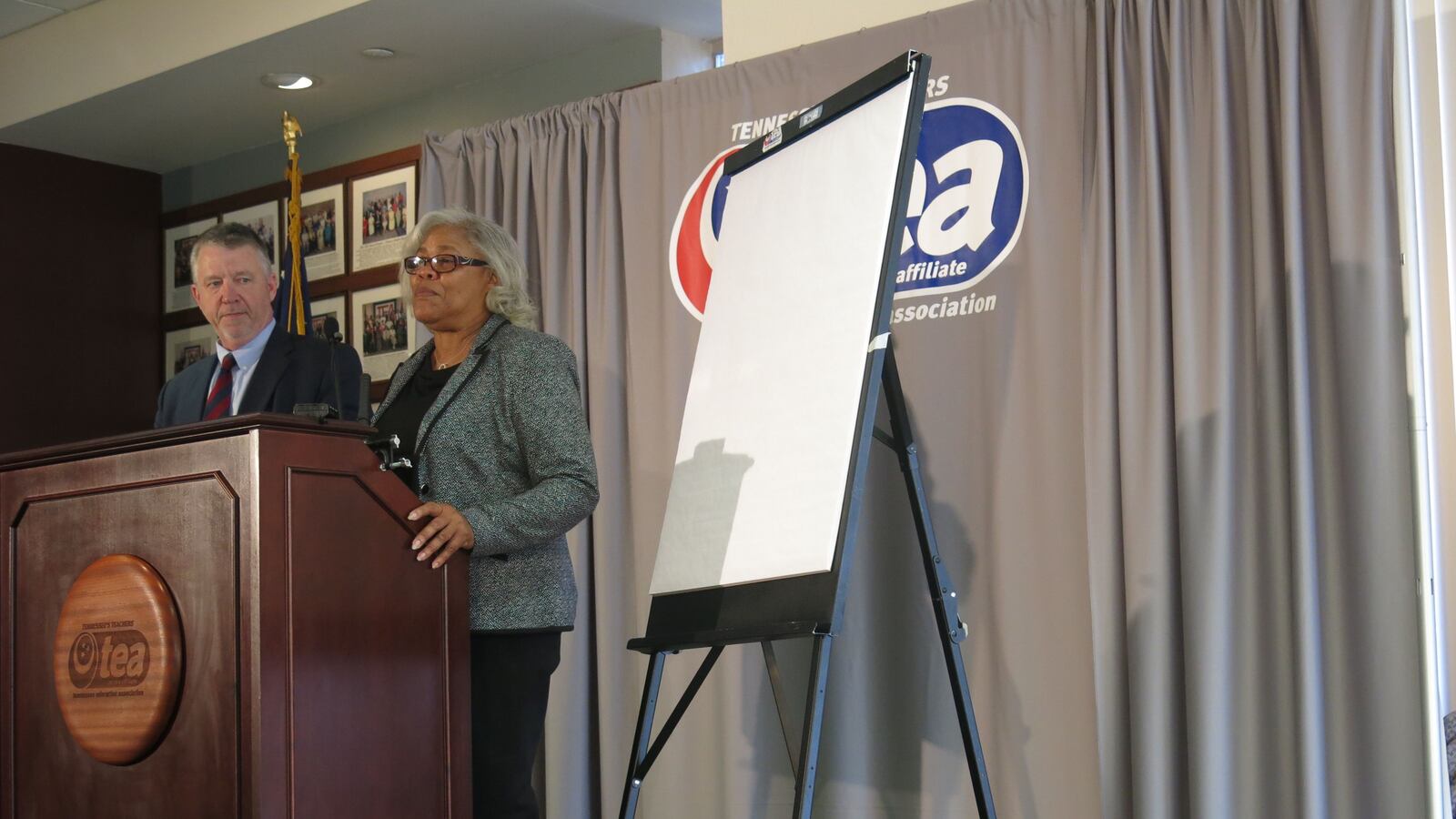Theresa Wagner has taught physical education at Nashville’s Gra-Mar Middle School for 11 years. Despite positive performance reviews from supervisors and districtwide awards from Metropolitan Nashville Public Schools, Wagner was denied a bonus from the district last school year because of low test scores throughout her school.
The catch? There’s no standardized test for physical education.
At least 25 percent of every teacher’s evaluation score in Tennessee is based on students’ growth on test scores in their school, regardless of whether they teach a subject for which the state administers a test.
The Tennessee Education Association (TEA), Tennessee’s largest teachers union, filed a lawsuit Thursday against state and district officials in Nashville and Anderson County, stating that the use of test scores to judge teachers of non-tested subjects is a violation of those teachers’ rights.
More than half of Tennessee’s public school teachers — about 50,000 — teach non-tested subjects, according to TEA president Barbara Gray.
This is the third lawsuit contesting the use of the Tennessee Value Added Assessment System (TVAAS), which measures growth in student test scores over a number of years to make decisions about everything from teacher bonuses to school closings. The first two suits, filed last March, contested the methodology of TVAAS – which TEA officials say is imprecise – for teachers whose students are tested. Those cases are pending in federal court in Knox County.
The latest lawsuit was filed in U.S. District Court in Nashville against Gov. Bill Haslam, state Education Commissioner Candice McQueen, members of the State Board of Education, and the school boards of Metropolitan Nashville and Anderson County.
In addition to Wagner, the suit is filed on behalf of Jennifer Braeuner, a visual arts teacher at Norris Middle School in Anderson County, who was denied tenure because of school-wide test scores.
“We need meaningful evaluations of teachers in Tennessee, no question,” TEA lawyer Richard Colbert said during a news conference in Nashville. “This is not a meaningful way to evaluate teachers.”
TEA officials say the use of TVAAS for non-tested subjects violates the 14th Amendment to the U.S. Constitution, which forbids states from denying “life, liberty or property, without due process of law.” Colbert said the use of TVAAS to deny bonuses, tenures or jobs to teachers such as Wagner and Braeuner amounts to a shirking of due process.
“Depriving someone of those interests on the basis of something they have no control over is arbitrary, and therefore not due process,” he said.
The National Education Association (NEA) has joined the lawsuit. “Students in Tennessee are being shortchanged because of the state’s arbitrary and irrational evaluation system that provides no meaningful feedback on their instruction,” said NEA president Lily Eskelsen García in a news release.
Gray and Colbert said they would prefer teachers be evaluated by pre- and post-tests during the school year, or portfolio-based assessments. They recently visited schools in New York that use portfolios rather than standardized tests and hope Tennessee education officials pilot a similar program.
Officials with the state Education Department and Nashville school district declined to comment on the lawsuit, and the superintendent of Anderson County Schools was not immediately available for comment.
However, McQueen issued a statement emphasizing that Tennessee teachers are receiving more feedback than ever to help improve their classroom instruction and, ultimately, student learning. “The department remains committed to providing meaningful feedback to teachers based, in part, on student growth,” she said.
Gov. Haslam echoed McQueen’s sentiments when asked about the lawsuit at a lunch for the Tennessee Press Association.
“I think what’s really important to me and to a lot of folks — and obviously to our state ultimately — is that we have an evaluation with some accountability to it,” he said. “Ultimately, what I think it will show is that our teachers by and large are doing a great job, and that’s why we’re seeing so much improvement.”
You can read the lawsuit in its entirety here.
Contact Grace Tatter at gtatter@chalkbeat.org.
Follow us on Twitter: @GraceTatter, @chalkbeattn.
Like us on Facebook.
Sign up for our newsletter for regular updates on Tennessee education news.

